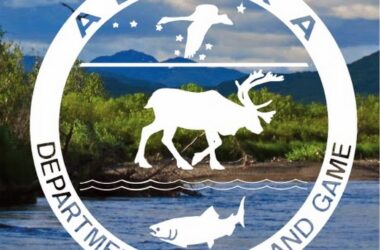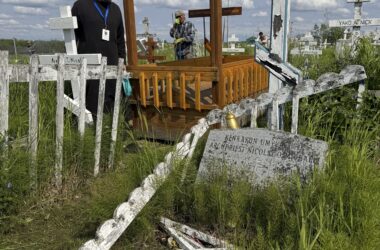During the 2021-22 school year, the Kenai Peninsula Borough School District was shorted funding to the tune of just over $5 million, according to a letter sent to the Department of Education and Early Development Commissioner Deena Bishop.
The letter, sent by federal officials from the U.S. Department of Education, states, “Alaska has not yet demonstrated compliance with the FY 2022 maintenance of equity requirements for at least three highest poverty local educational agencies [LEA].”
The funds in question were COVID relief funds from the American Rescue Plan (ARP) Act of 2021.
The letter identifies three school districts that experienced a “Maintenance of Equity Shortfall”: the North Slope, Juneau, and the Kenai Peninsula. According to the letter, the North Slope District was shorted $193,725, the Juneau School District $2,557,336, and the Kenai Peninsula Borough School District a whopping $5,094,972.
The revelation of the state’s failure to comply with the ARP funding requirements, as well as the $5 million ARP for the district, came as a surprise to many, including district leadership who did not learn about the letter sent to DEED until just a couple weeks ago.
“We received a letter from a legislator down in Juneau that showed that the US Department of Education had contacted Commissioner Bishop and DEED stating that we were owed about $5 million from the federal COVID funding,” said KPBSD Superintendent Clayton Holland. “We’ve been trying to figure out what that means and if we’re actually going to get new funding.”
Since then, Superintendent Holland said he has reached out to Commissioner Bishop for answers but has not received any reply.
“I would have hoped [for] even just a notification that ‘hey, this came up and we’re looking into it, you may be entitled [to funds].’ Instead, we never received anything from DEED,” said Superintendent Holland.
$5 million is a significant number by any measure, but with a $13 million deficit looming for the KPBSD 2024-25 school year, that amount would prove invaluable to the district. Add to that the $680 increase to the base student allocation (BSA) included in the education bill passed by the Alaska House of Representatives on Thursday and the district’s $13 million deficit gap would be closed. (The education bill does still have to clear the Senate and Gov. Mike Dunleavy’s desk, however, before the $680 BSA increase becomes official.)
Holland affirmed the extent to which the funds would sufficiently address the district’s coming budget needs. “That would do it, to be frank. That would close our gap.”
The U.S. Department of Education letter goes on to suggest that the State begin rectifying the shortfalls by stating, “One way that Alaska may resolve the identified compliance issues for FY 2022 is by making supplemental payments to the highest poverty LEA’s equal to the amount of the state funding reductions considered disproportionate under the maintenance of equity requirement.”
As if to double down on this suggestion, the letter adds an ultimatum for state officials, giving DEED a 30-day window (which has now passed) to provide a plan by which it intends to address the shortfalls and threatening “enforcement actions.”
“This plan should clarify the extent to which the State is planning to make supplemental payments to the CLE’s listed above. Please include information regarding how and when any supplemental payments will be made and provide any additional data as applicable. If DEED does not provide a timely response, the Department may take appropriate enforcement actions, such as adding specific conditions to the States ARP ESSER Award designating a state as a high-risk grantee and potential recovery of ARP ESSER funds.”
KSRM reached out to several offices for comment, including Commissioner Bishop and the U.S. Department of Elementary and Secondary Education, but none could be reached for comment at this time.






